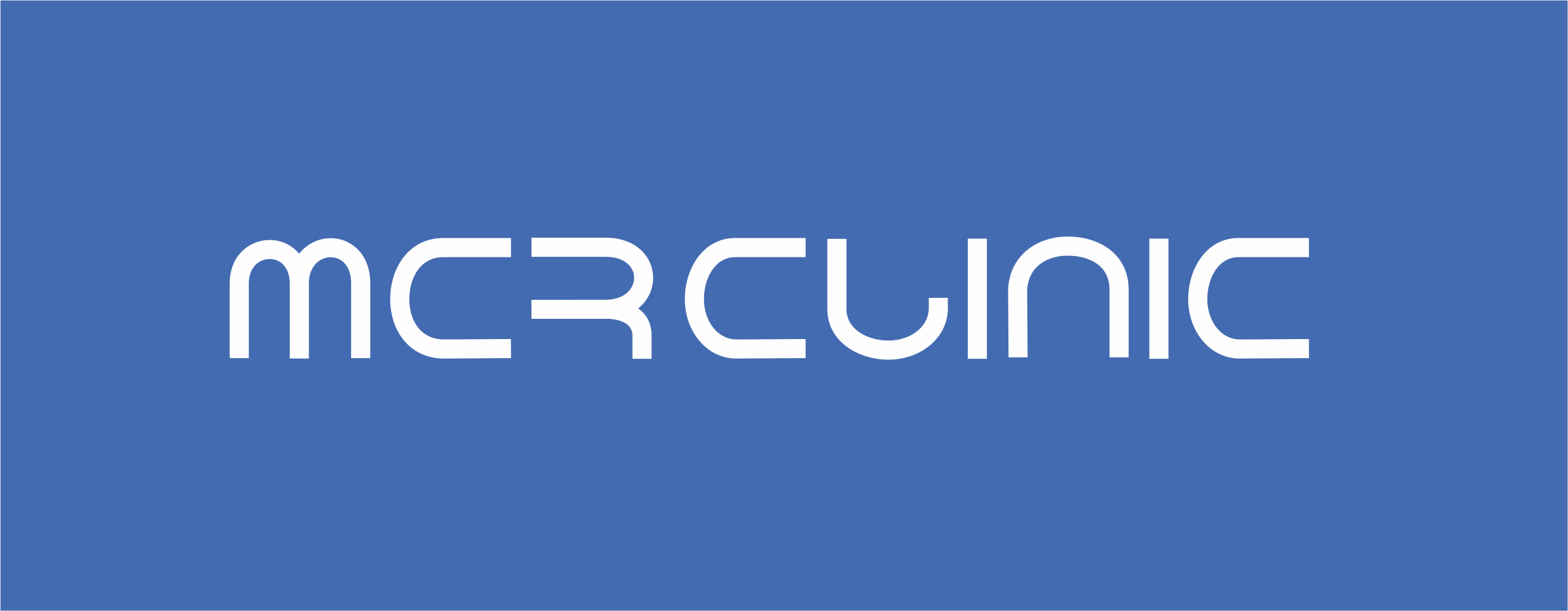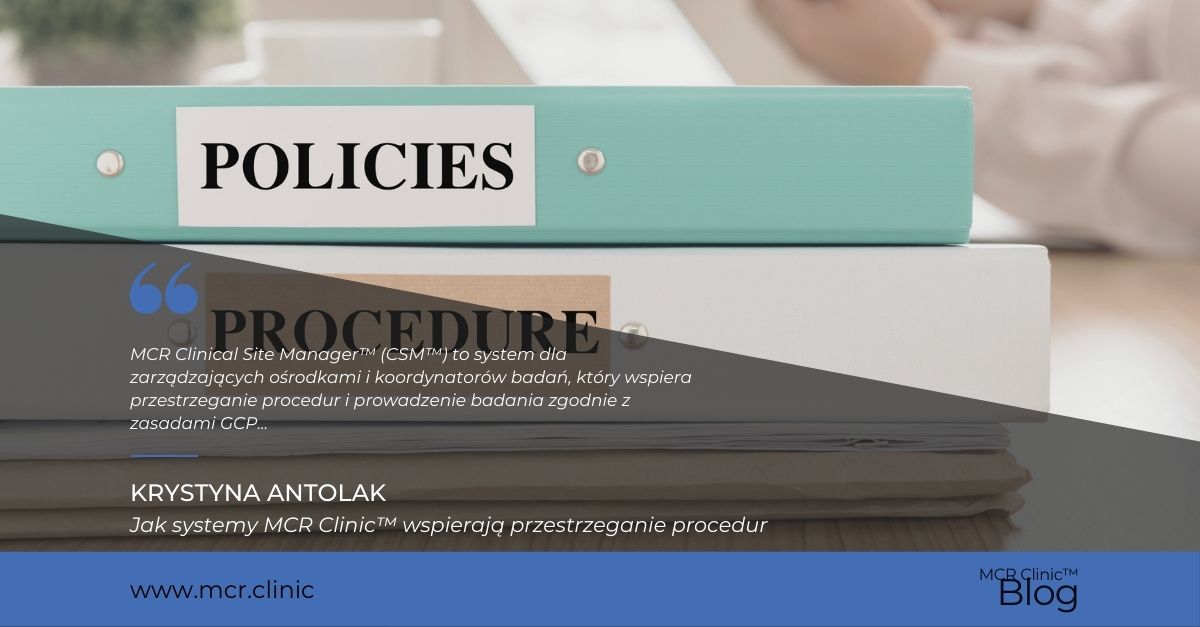Reliable adherence to procedures in the conduct of a clinical trial is necessary to ensure the high quality of the trial and its credibility.
Although knowledge in the area of Good Clinical Practice (GCP) in sites is growing, still audits and inspections show irregularities in many key areas of a clinical trial.
MCR’s Clinical Site Manager™ (CSM™) is a system for site managers and study coordinators that supports adherence to procedures and the conduct of the study in accordance with GCP.
1. The informed consent process
Obtaining informed patient consent to participate in a trial is a complex process. It is important to remember that studies often involve severely neurologically ill or oncologically ill patients with varying levels of consciousness. Not infrequently, we also deal with patients whose decisions are made by court-appointed guardians
MCR Clinic™ aims to implement a solution that will provide comfort in signing informed consent to both patients and researchers. Such a solution is to be “my ID.” While the first signing of consent should be done in person as it allows the researcher to take a history, subsequent consents will be able to be signed remotely.
2. Patient Safety
In the traditional clinical trial monitoring model, patients are far more vulnerable to errors and oversights.
Manually entering and copying data or having a monitor visit the site once every few weeks are just some of the situations conducive to error.
MCR Clinic™ systems (CSM™ for the investigator and eSRV™ for the monitor) significantly reduce errors and therefore costs.
Selected error-reducing features:
- Communication module with auto-complete forms (we immediately know which study or which study participant is involved).
- Data update once every 24 hours on the site side and once every 24 hours or on request on the sponsor side.
- Mobile application facilitating the use of the system by researchers, monitors and patients – in this case it reminds them about taking medication or a planned medical appointment.
- Visible path of changes – Audit Trail – authorized users have access to information about introduced changes and their nature.
- Expanded notification system – an example here is the notification of the National Health Fund about the inclusion of a given patient in a study or information about a postponement of an appointment or alert about the need to update a document.
These functionalities increase patient safety through the ability for the monitor to react quickly – for example, when a test needs to be repeated or ordered
Essentially, this reduces the time between action and response compared to a situation where the monitor visits the facility once every few weeks and only then has a look at documentation that may indicate an error.
3. The investigational product management process
The study product management process is an extremely important element in clinical trial monitoring. Failure to follow procedures can lead to invalidated results and the need to repeat the study.
The MCR CSM™ system includes a Document Repository to help you follow the study product management process.
The Document Repository includes:
- Information about the investigational drug.
- Instructions for handling the investigational drug product and other materials (if not included in the investigator’s brochure).
- Documentation of shipping dates, lot numbers, and methods of shipment of the investigational drug product and other materials.
- Certificate of batch control of the shipped investigational medicinal product.
- Certificate of new lot control of the investigational medicinal product.
- Documentation of destruction of the investigational medicinal product.
4. Clinical trial documentation
Proper documentation of all steps taken is a critical element in a clinical trial. It is critical that each investigator record every action taken to ensure reliable results.
The CSM™ system includes a number of facilities that support study documentation:
- Study Schedule.
- A study plan linked to the price list for medical services.
- Automatically generated reports of various levels, such as recruitment, financial, individual, and total study.
5. Study protocol compliance and abnormality reporting
For a clinical trial to be credible, all investigators should perform the same activities, at the same intervals and in the same order.
MCR Clinic ™ system supports adherence to the study protocol. First of all, it enforces repetition by reminding subjects of the next steps in the study, with no option to move on without adding specific information. This means that until a certain step is completed, it is not possible to move on. This significantly minimizes the risk of missing key steps in the study or documenting them.




